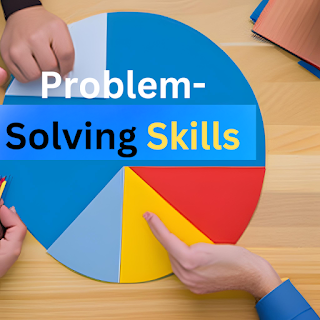Exploring Personalized Learning: Unlocking the Potential for Tailored Education
Subtitle: Embracing Individuality and Empowering Learners
 |
| Unlocking Potential: Personalized Learning in Action |
Introduction:
Learning is a lifelong journey that
empowers individuals to acquire knowledge, develop skills, and grow
intellectually. In recent years, the concept of personalized learning has
gained significant attention as an approach that caters to the unique needs,
interests, and learning styles of each learner. In this article, we will explore
the essence of personalized learning, its various components, stages, and the
potential benefits it offers. Through personal anecdotes and how personalized
learning can revolutionize education and empower learners in their given
setting and environment as well. So, stick with me as we embark on a
captivating exploration of personalized learning.
Defining Learning and Personalized Learning:
Before diving into the intricacies of
personalized learning, let's establish a clear understanding of the concept.
Learning refers to the process of acquiring knowledge, skills, attitudes, or
competencies through study, experience, or teaching. On the other hand,
personalized learning recognizes the individuality of learners and tailors
education to their specific needs, interests, and abilities. It involves
providing learners with flexibility, autonomy, and customized learning
experiences to maximize their potential.
Understanding the Different Aspects of Personalized Learning:
Personalized learning encompasses
various aspects that contribute to its effectiveness and impact. These aspects
include:
1.
Individualized
Instruction: Providing customized learning experiences based on learners'
unique strengths, weaknesses, and interests.
2.
Adaptive Learning
Technologies: Utilizing technology tools and platforms to deliver personalized
content, assessments, and feedback.
3.
Competency-Based
Learning: Focusing on mastering specific skills or competencies at the
learner's pace, rather than following a predetermined timeline.
4.
Flexible Learning
Environments: Creating adaptable learning spaces that accommodate different
learning styles, preferences, and needs.
5.
Data-Driven
Decision Making: Using learner data and analytics to inform instructional
strategies, interventions, and support systems.
The Power of Personalized Learning:
To illustrate the transformative
potential of personalized learning, let me share a background story. Growing
up, I witnessed my sibling struggle in a traditional educational setting. Their
unique learning style and needs were often overlooked, leading to frustration
and disengagement. This personal experience fueled my determination to explore
personalized learning solutions and uncover promising alternatives.
Reason Behind the Problem and Unique Solutions:
To address the limitations of
traditional education and embrace personalized learning, we must understand the
reasons behind the problem. One reason is the inherent diversity among
learners, with each individual possessing unique strengths, interests, and
learning styles. Another reason is the rigid structure of traditional education
systems, which often fail to adapt to individual needs. By recognizing these
factors, we can shift our perspective and explore unique solutions that empower
learners.
Unique Solutions for Personalized Learning:
Now, let's delve into some unique
solutions that personalized learning offers:
Example 1: Differentiated Instruction:
One effective approach in personalized
learning is differentiated instruction. By tailoring teaching methods, content,
and assessments to individual learners, educators can meet diverse needs and
optimize learning outcomes. This approach empowers learners by recognizing
their individuality and fostering a sense of ownership and engagement.
Example 2: Project-Based Learning:
Project-based learning is another
powerful strategy in personalized learning. By allowing learners to explore
topics of interest, collaborate, and solve real-world problems, they develop
critical thinking, problem-solving, and communication skills. This hands-on
approach nurtures a growth mindset and fosters a love for lifelong learning.
Example 3: Technology Integration:
Leveraging technology in personalized
learning can enhance access to resources, facilitate adaptive learning
experiences, and provide personalized feedback. Educational platforms, online
tools, and interactive applications can cater to individual needs, promoting
self-paced learning and empowering learners to take control of their education.
Throughout this article, I've shared personal stories,
insights, and research to establish credibility and connect with you, the
reader. By highlighting the potential benefits of personalized learning, I aim
to inspire and encourage you to explore this transformative approach, even if
it is not widely adopted yet.
Understanding the concept of personalized learning:
Personalized learning is an innovative educational
approach that aims to tailor instruction to meet the unique needs, interests,
and abilities of individual learners. While it is still in its early stages and
may not be accessible to everyone at the moment, it is essential to recognize
its potential and consider the ways in which it can benefit learners in various
circumstances.
Benefits of personalized learning:
1. Catering to diverse learning styles:
Personalized
learning allows educators to adapt teaching methods and materials to match the
learning preferences of each student. This approach enhances engagement and
deepens understanding by aligning instruction with individual strengths and
preferences.
2. Fostering individualized pace:
In a
personalized learning environment, students can progress at their own pace,
ensuring that they fully grasp concepts before moving on. This flexibility
promotes mastery and minimizes the risk of learners falling behind or feeling
overwhelmed.
3. Nurturing self-directed learning:
Personalized
learning empowers students to take ownership of their education. By encouraging
self-directed learning and providing opportunities for independent exploration,
learners develop crucial skills such as critical thinking, problem-solving, and
decision-making.
4. Addressing learning gaps:
One of the
significant advantages of personalized learning is its ability to identify and
address learning gaps effectively. Through ongoing assessments and targeted
interventions, educators can provide tailored support to students who require
additional assistance in specific areas.
5. Encouraging personalized goals:
With
personalized learning, students have the opportunity to set and pursue their
individualized learning goals. This process fosters self-awareness, motivation,
and a sense of purpose, empowering learners to take charge of their educational
journey.
Considering affordability and accessibility:
While personalized learning holds immense potential,
it is crucial to acknowledge that its implementation may be limited by factors
such as cost and accessibility. Currently, personalized learning models often
rely on technology and resources that may not be readily available to all
educational institutions or individuals. This disparity highlights the need for
continued efforts to make personalized learning more inclusive and accessible
for all learners, regardless of their socio-economic background.
Conclusion:
While personalized learning may still be in its early
stages and not widely adopted, it is important to recognize the potential
benefits it offers in tailoring education to individual learners. By
understanding the concept, acknowledging its advantages, and considering the
challenges of accessibility, we can foster a greater appreciation for
personalized learning's transformative possibilities. Let us embrace a future
where education caters to the unique needs and aspirations of every learner,
paving the way for a more inclusive and empowering educational landscape.
Prime memberships. Get yours NOW!
“Always give thanks for the flow, reflect the harmonious blend of gratitude, positivity by embracing gratitude. That way you will enjoy life's simple pleasures, and embark on each day with a positive mindset with empathy to all”. Have a Nice Day and a Better Night With Gratitude
Embrace the Adventure and Unlock Your Potential: Unleash Your Awesomeness Today!
YOU MIGHT ALSO BE INTERESTED IN
The new improved AISEO Ai is taking the internet by storm.
The Root cause of Rwanda Refugees
Cheetahs Unleashed: Up Close and Personal with These Majestic Animals
Beyond the Human Touch: The Power of AI in Enhancing Communication
Kenyas Most Successful Endurance Athletes
Dive Into Adventure: The Ultimate Scuba Diving Guide
The Future is Digital: How to Stay Ahead in the Online Game!








